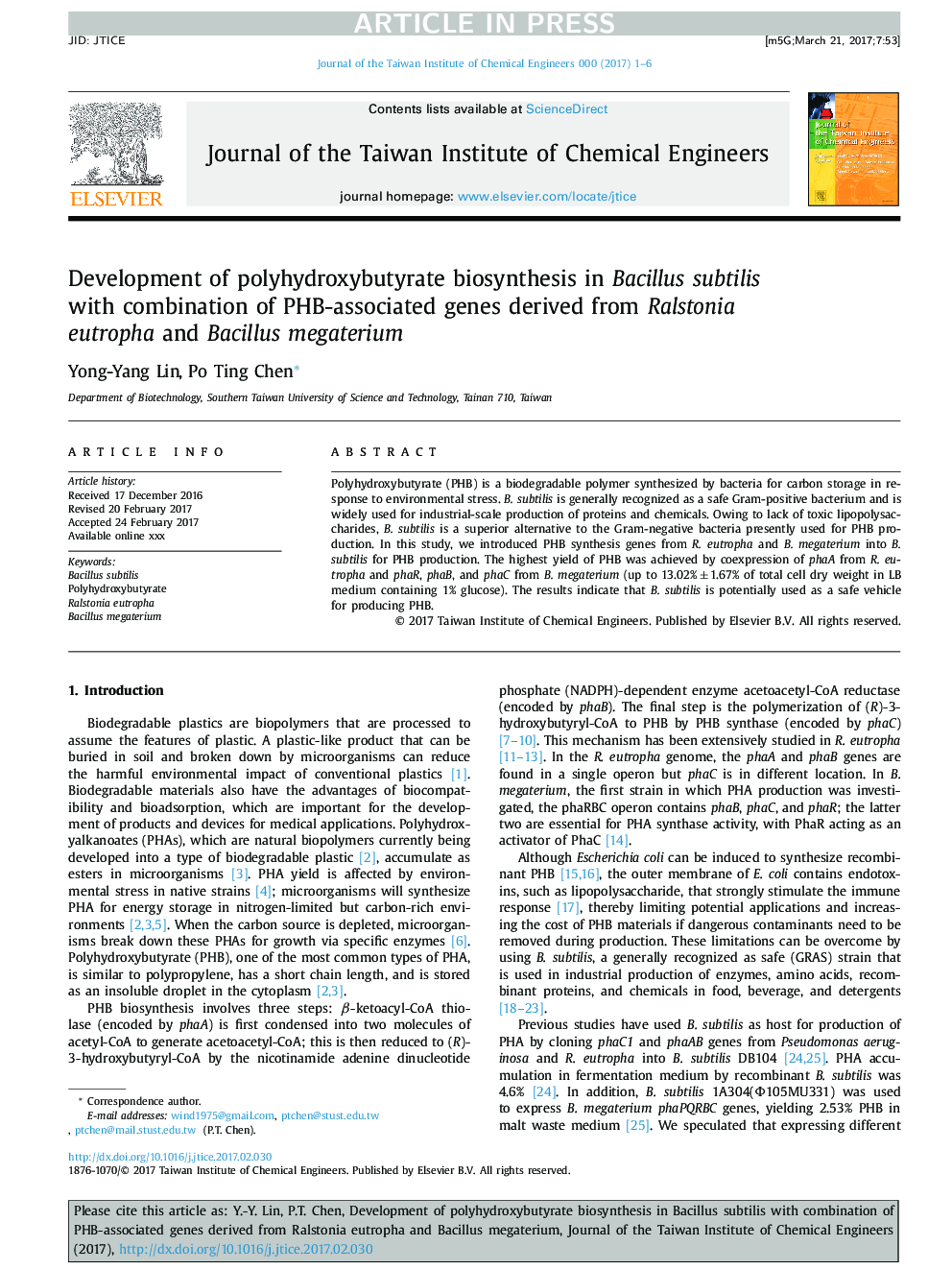| Article ID | Journal | Published Year | Pages | File Type |
|---|---|---|---|---|
| 4998545 | Journal of the Taiwan Institute of Chemical Engineers | 2017 | 6 Pages |
Abstract
Polyhydroxybutyrate (PHB) is a biodegradable polymer synthesized by bacteria for carbon storage in response to environmental stress. B. subtilis is generally recognized as a safe Gram-positive bacterium and is widely used for industrial-scale production of proteins and chemicals. Owing to lack of toxic lipopolysaccharides, B. subtilis is a superior alternative to the Gram-negative bacteria presently used for PHB production. In this study, we introduced PHB synthesis genes from R. eutropha and B. megaterium into B. subtilis for PHB production. The highest yield of PHB was achieved by coexpression of phaA from R. eutropha and phaR, phaB, and phaC from B. megaterium (up to 13.02% ± 1.67% of total cell dry weight in LB medium containing 1% glucose). The results indicate that B. subtilis is potentially used as a safe vehicle for producing PHB.
Related Topics
Physical Sciences and Engineering
Chemical Engineering
Process Chemistry and Technology
Authors
Yong-Yang Lin, Po Ting Chen,
